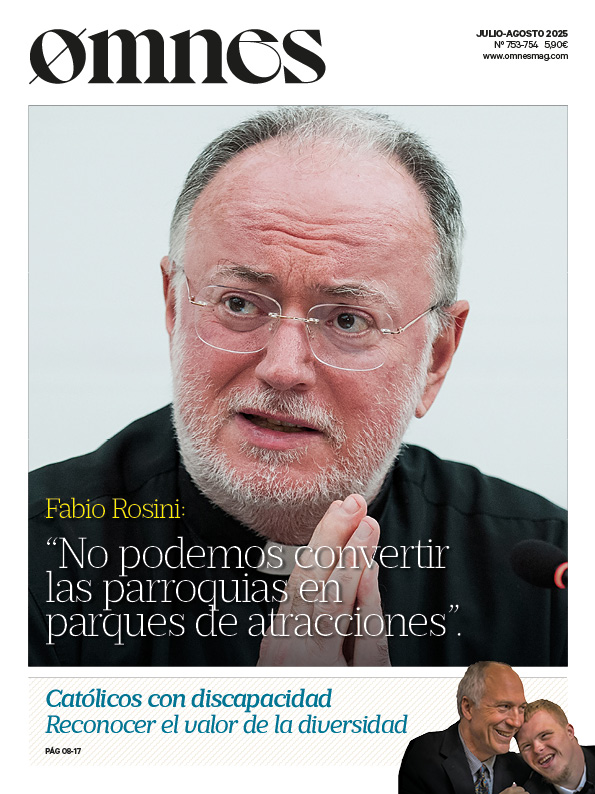It was May 1994 when I heard her sing live (on television) for the first time. I was not yet 16 years old. I was zapping and about to go to sleep (I had school the next day). Just as I was about to turn off the TV, she appeared, Whitney Houston: wrapped in a black and white dress, with her hair up, her eyes dreamy, the audience ecstatic at her feet, beautiful. She began to sing: "If I... should stay...", the first verses of "I will always love you". I was floored!
Until then I had listened to some of his songs, but I hated that "I will always love you": it was everywhere. They played it non-stop on the radio in the bus that took me to school, at home while I was doing my homework, at the gym... I couldn't stand it anymore! But to hear her sing it live, and even better than on the album, well, that had never happened to me.
So, from that moment on, I started listening to all his albums, I know all his songs, I rejoiced at his triumphs, I witnessed his tragic decline and I cried at his sudden demise, on February 11, 2012.
Many things can be said about her, but she was undoubtedly one of the greatest artists, and perhaps the greatest voice, of all time, the most awarded in history. In the United States she is still called "The Voice".
Destined to become a legend
Whitney Elizabeth Houston was born in Newark, New Jersey, on August 9, 1963, the last child of John and Cissy. Her mother was a first cousin of Dionne Warwick and a famous gospel singer, as well as a celebrated backup singer for Elvis Presley and Aretha Franklin (hers is the famous high soprano note on Franklin's "Ain't No Way").
As a child, Whitney (who had two older brothers and was called Nippy by her family) sang in the church where her mother directed the choir (New Hope Baptist Church in Newark) and stood out for her prodigious voice (at the age of 11 she sang her first solo). As she was also very pretty, she had the opportunity to pose as a model for Seventeen magazine (the first girl of color to appear on the cover) and make some appearances in television series. She began her career in the music world as a backing vocalist, along with her mother, for several artists (among them Chaka Khan, in "I'm every woman", of which she would later make a famous version).
The opportunity, however, came when, in a New York club where she sang with her mother, Whitney performed a version of George Benson's "Greatest love of all" in front of the producer of that same song, as well as one of the greats of music (having produced, among others, Aretha Franklin and Janis Joplin): Clive Davis. In an interview, Davis declared that he was impressed (as I and many others) by the most beautiful voice of his generation and by the way he had interpreted that song, which he himself had produced years before, giving it a meaning, a soul, that no one else had managed to give it.
Davis signed Whitney to Arista Records and, from then on, it was one hit after another: the first album, "Whitney Houston" (1985), with hits such as "You give good love", "Greatest love of all", "How will I know", "All at once"; the second, "Whitney" (1987), with the famous "I wanna dance with somebody". In just a few years, Whitney Houston became a major star, the first woman to have seven No. 1 singles (surpassing the Beatles), awards galore (Grammy, American Music Award and others) and worldwide fame.
Too black for whites, too white for blacks
With success, of course, came the first difficulties. From the beginning, Whitney faced a change of direction with respect to other African-American singers: more pop sounds, simple melodies and not too much gospel or soul (but in live performances her voice left, like Aretha Franklin, an indelible soul imprint), and this to make her more acceptable to the white public (and the African-American did not like it, so much so that sometimes she was booed loudly and some called her Oreo, like the black cookies on the outside and white on the inside).
However, she was the first African-American singer to become an MTV star, paving the way for others after her and inventing a way of singing that all her heiresses have since tried to match (Céline Dion, Mariah Carey, Beyoncé, Adele, etc.).
There were also rumors about his sentimental and private life (which I will not dwell on) that always made him suffer a lot.
Whitney tried to adapt, but then her character began to surface, with a desire for something that was more her own, to such an extent that she managed to prevail over Davis to produce an album, "I'm your baby tonight" (1990), which was a notable departure from the first two, with blacker sounds.
"The Bodyguard" and the 1990s.
The consecration was yet to come, and in fact it came in 1992, when Whitney starred alongside Kevin Costner in the movie "The Bodyguard", which made her even better known around the globe, made her the most famous singer in the world and produced the best-selling female single in history ("I will always love you", written and sung years earlier by Dolly Parton) and the best-selling soundtrack of all time.
In the meantime, came also the marriage with the famous Bobby Brown and motherhood (her daughter Bobby Kristina was born in 1993 and, unfortunately, died a few years after her mother, also found unconscious in the bathtub).
Despite early emotional storms and drug problems, the 1990s were full of successes (two other films: "Waiting to exhale", with its soundtrack, and "The preacher's wife", with the eponymous gospel album sung by Houston, which became the best-selling gospel album of all time).
Another critically and public acclaimed album was "My love is your love", more hip hop oriented.
Decline and death
The 2000s were marked mainly by drug problems, detoxes and the loss of her voice, but also by two other albums ("Just Whitney", 2002, and "I look to you", 2009), film productions, Brown's divorce and several attempts to regain her voice and success.
Despite having tried with all her might to get back on her feet, Whitney Houston died on February 11, 2012 in a Beverly Hills hotel, not so much from drugs (which also contributed, along with smoking, to her physical deterioration), but from heart problems due to atherosclerosis, a disease that had also affected another of the great voices of the 20th century: Maria Callas.
Faith and inheritance
Whitney Houston was always very religious. Besides dedicating years and years to singing in church, she always gave public testimony of her Baptist faith. Testimonies from the days before her death refer to her desire to finally meet Jesus, tired of all the vanities of show business. Several friends, among them Robyn Crawford, declared that she would lock herself in her room for hours to "talk to Jesus".
Certainly, her earthly life ended tragically, but her artistic and human legacy is destined to live on forever. I will conclude with the obituary that had the greatest impact on me after her death, that of the great Italian singer Mina:
"They leave, they want to leave. Another tragedy, another absurdity, another absence, another mystery. I don't want to know why Whitney Houston died. I don't want to relate, once again, a great musical talent with drug stories. The 'cursed' equation that associates success with fragility, art with depression, applause with drugs continues to haunt a world that, only in appearance, only contains privilege.
Please don't tell me if that were really the case. I want to keep her in my memory as I see her: tall, beautiful, extraordinarily talented. I know little about her life. And everything about her music. An angel who sings like that would have deserved what now seems an unattainable 'prize': a conscious existence, a happy life. She really invented a way of singing, not an easy one, that everyone has tried to imitate. It has become the term of comparison. The litmus paper. The model. The unattainability.
And, as often happens to me in cases like this, I can't help but think about where a person's talent ends when they are no longer in the form we know them to be."
However, those who have faith may remember the words of a famous and beautiful song Whitney made famous: "Jesus loves me".
"Jesus loves me, the Bible says so and I believe it. The little ones belong to him: we are weak, but he is strong. And I press on upward, I pray, Lord, lead me! I am unworthy and stubborn, I know, but never stop loving me. Sometimes I am lonely, but I know I am never lonely, for Jesus loves me, I know, when I am wrong and when I am right. Amen."








